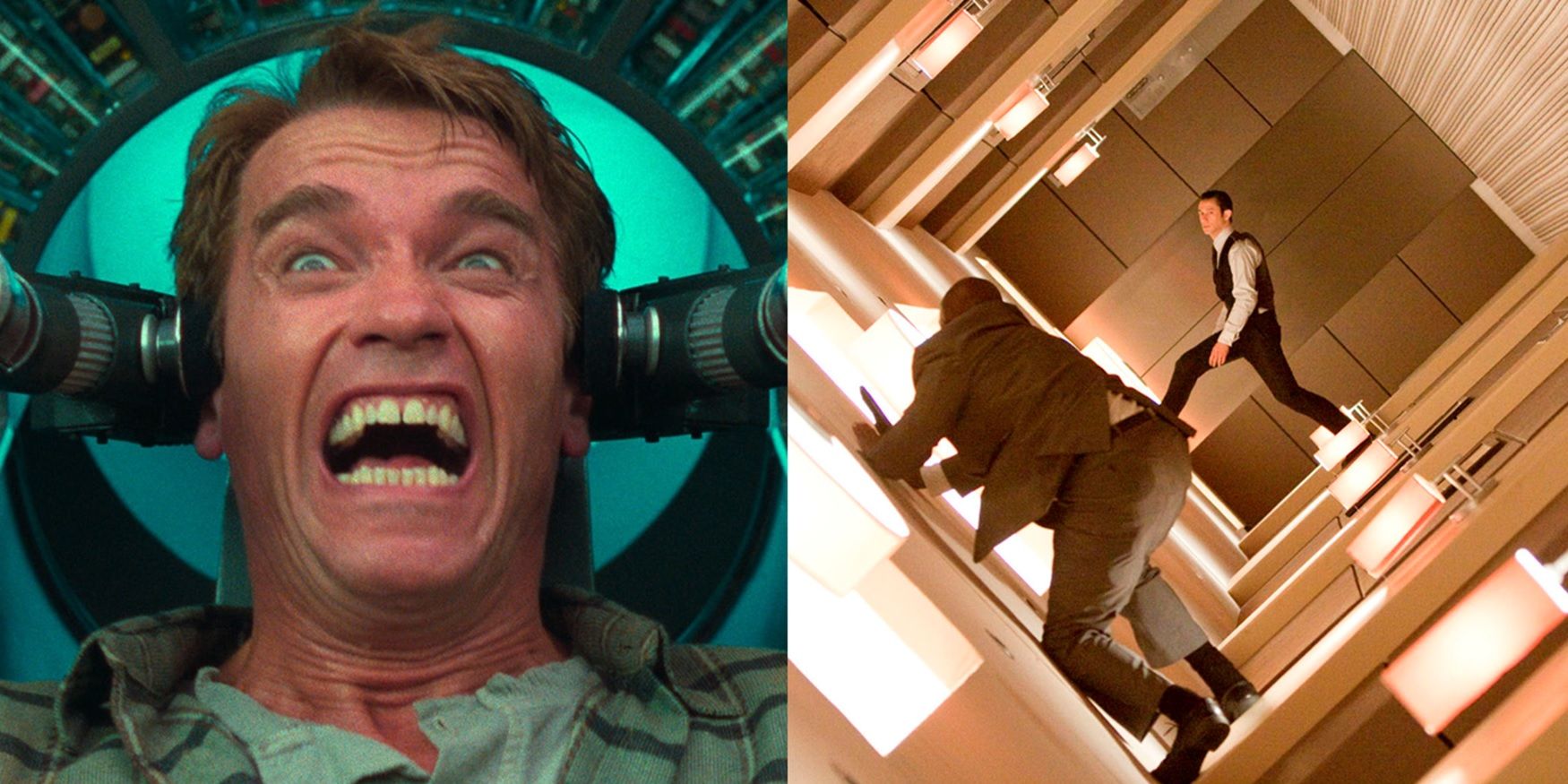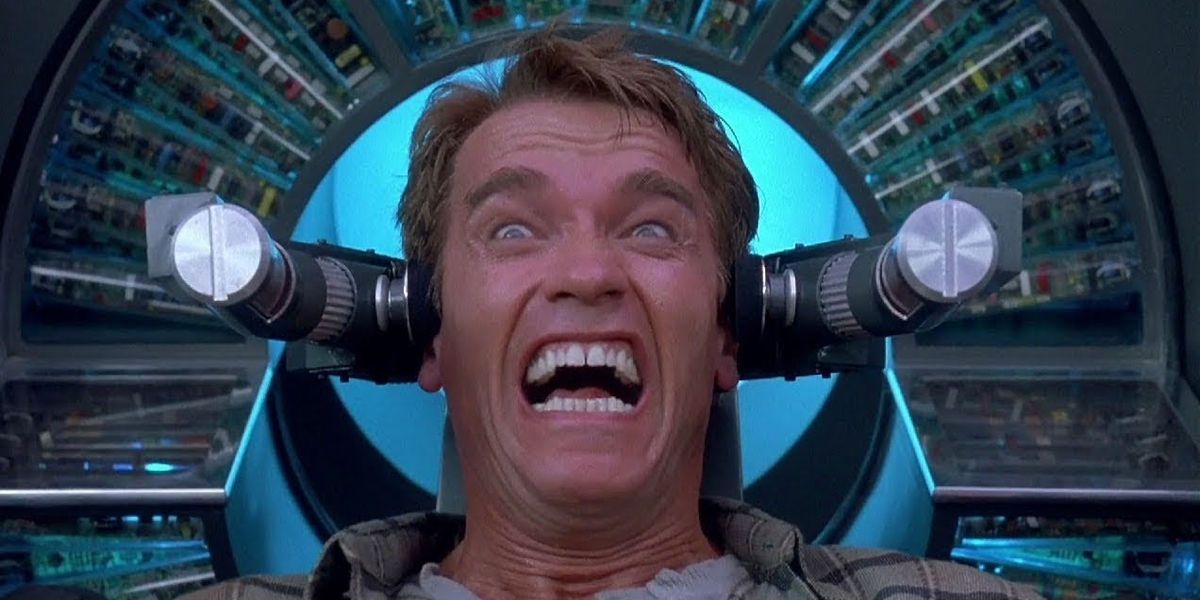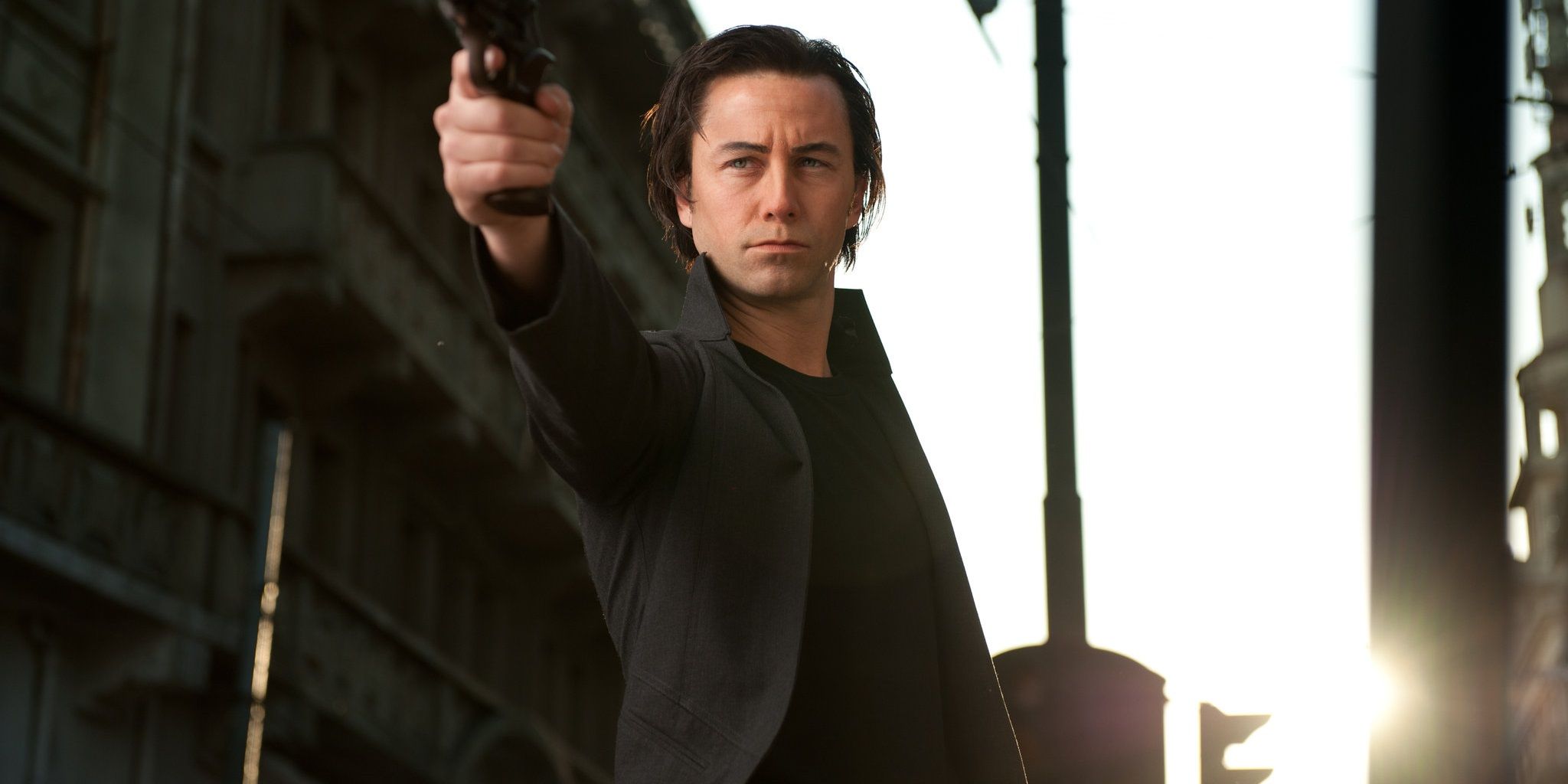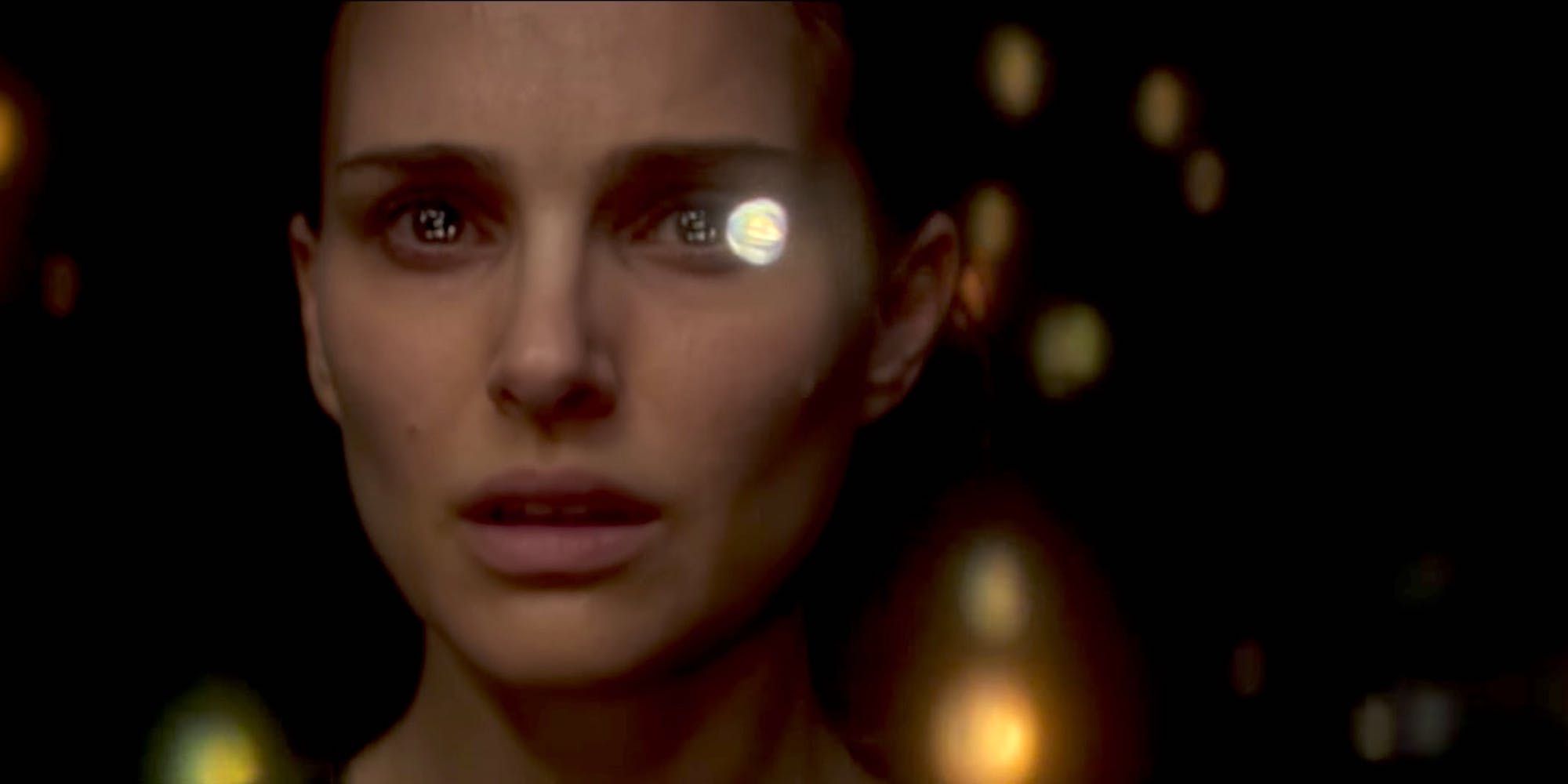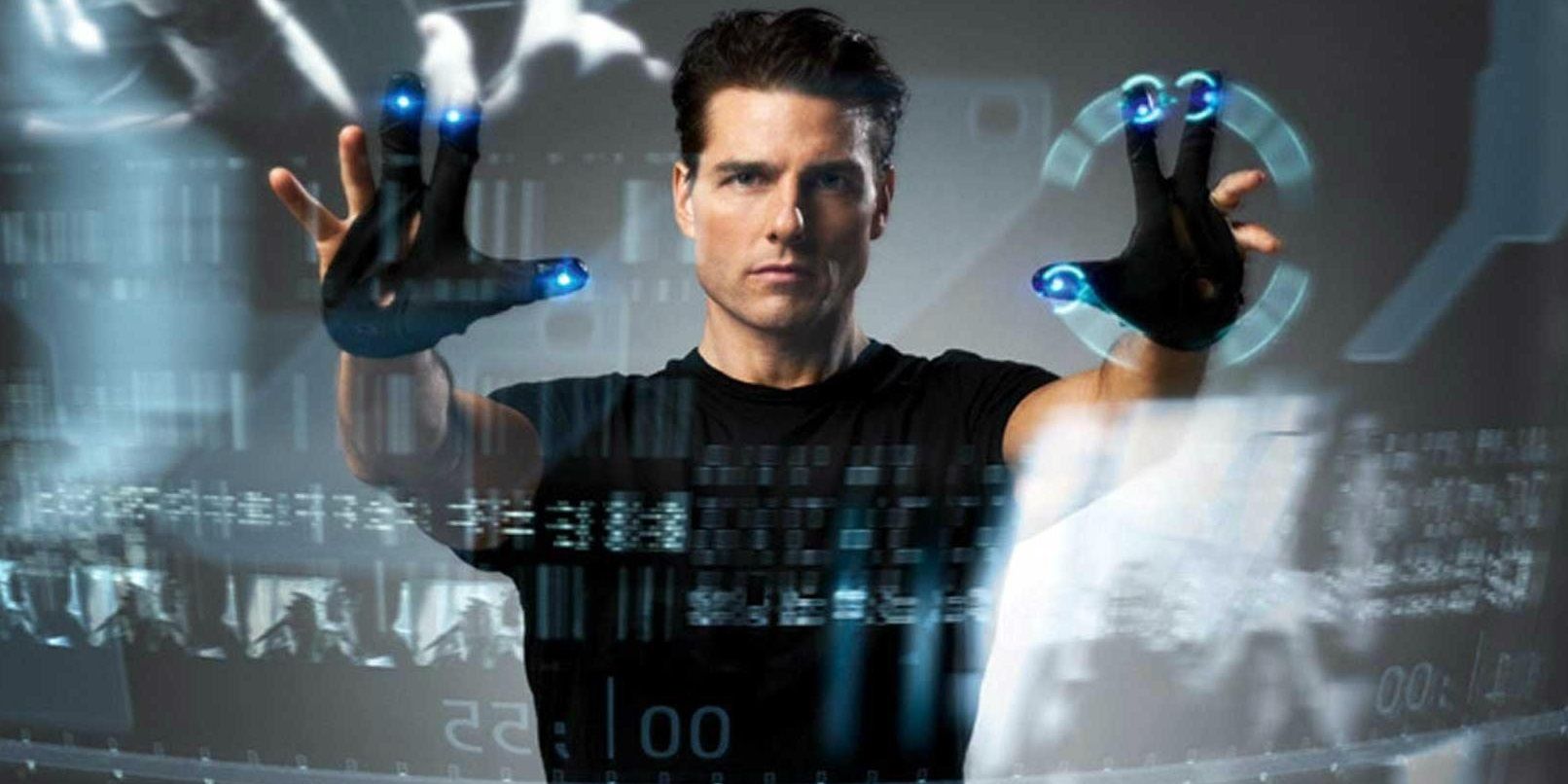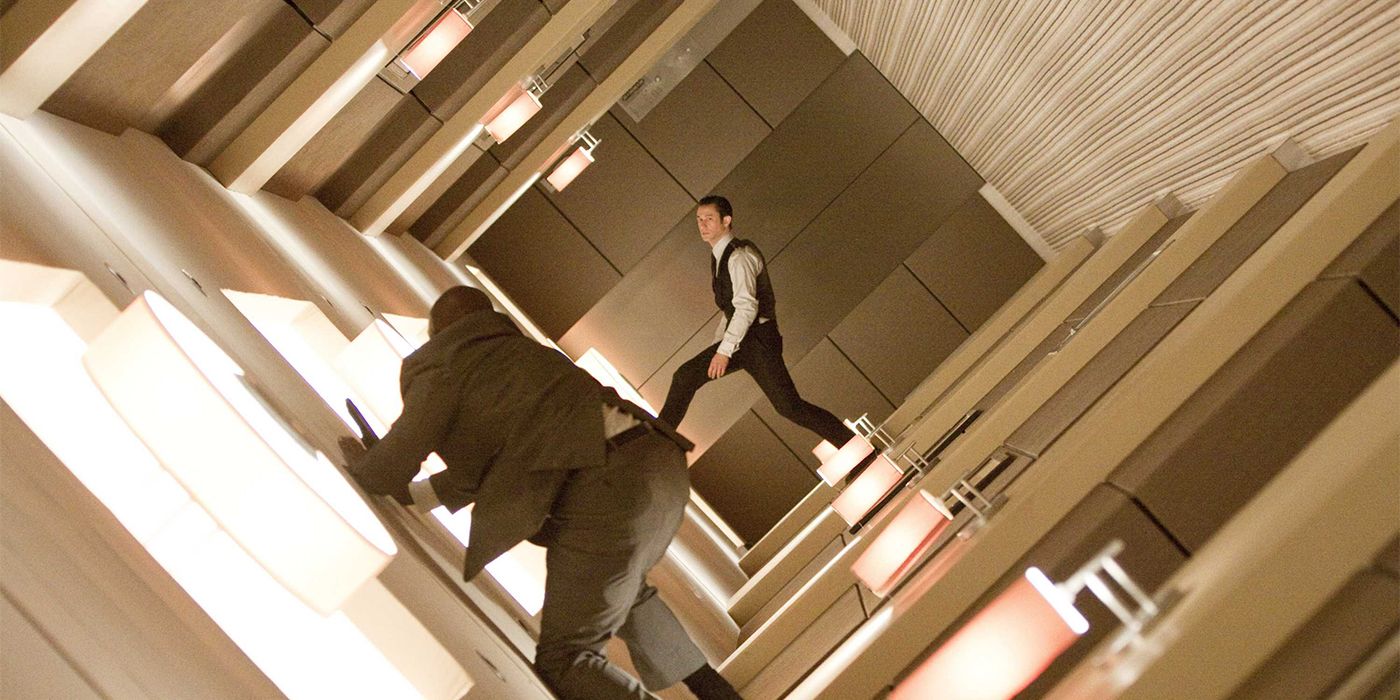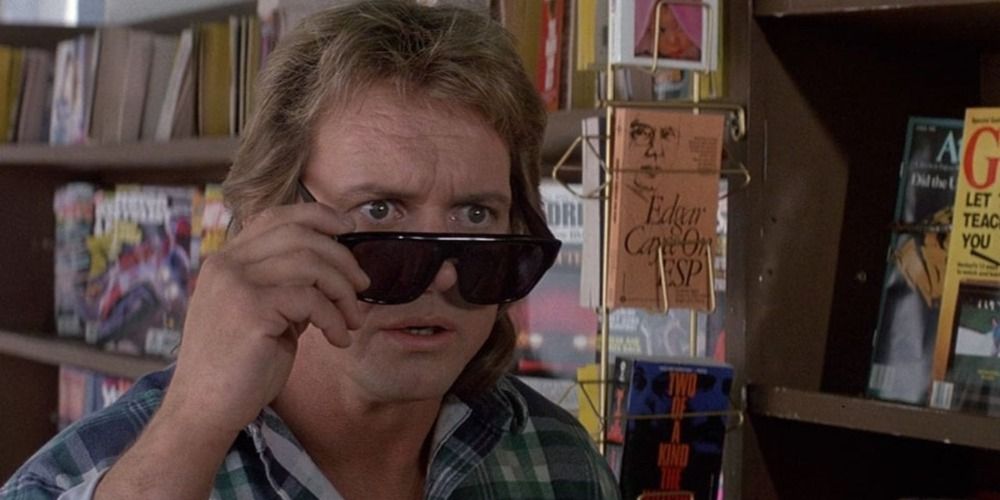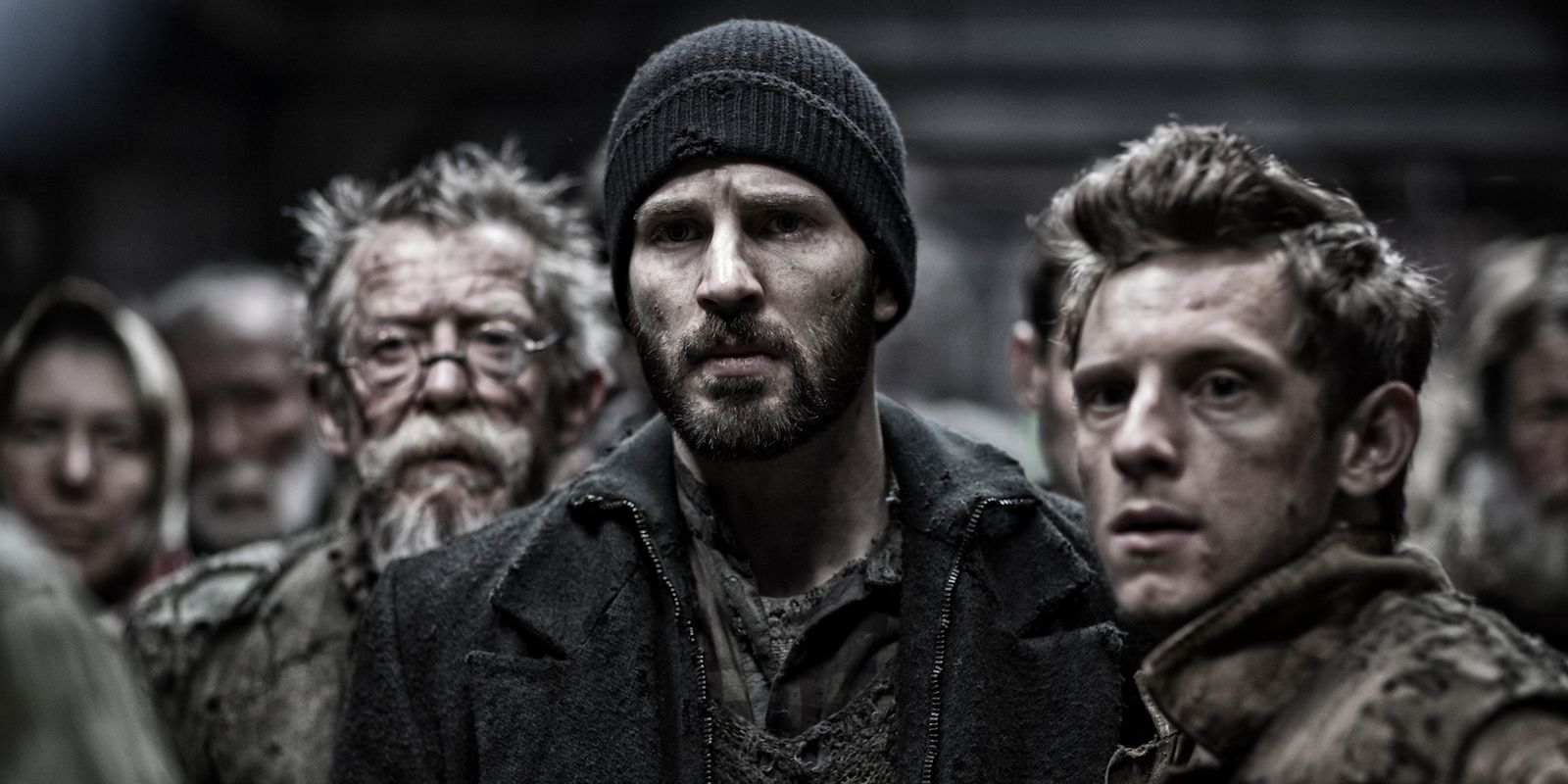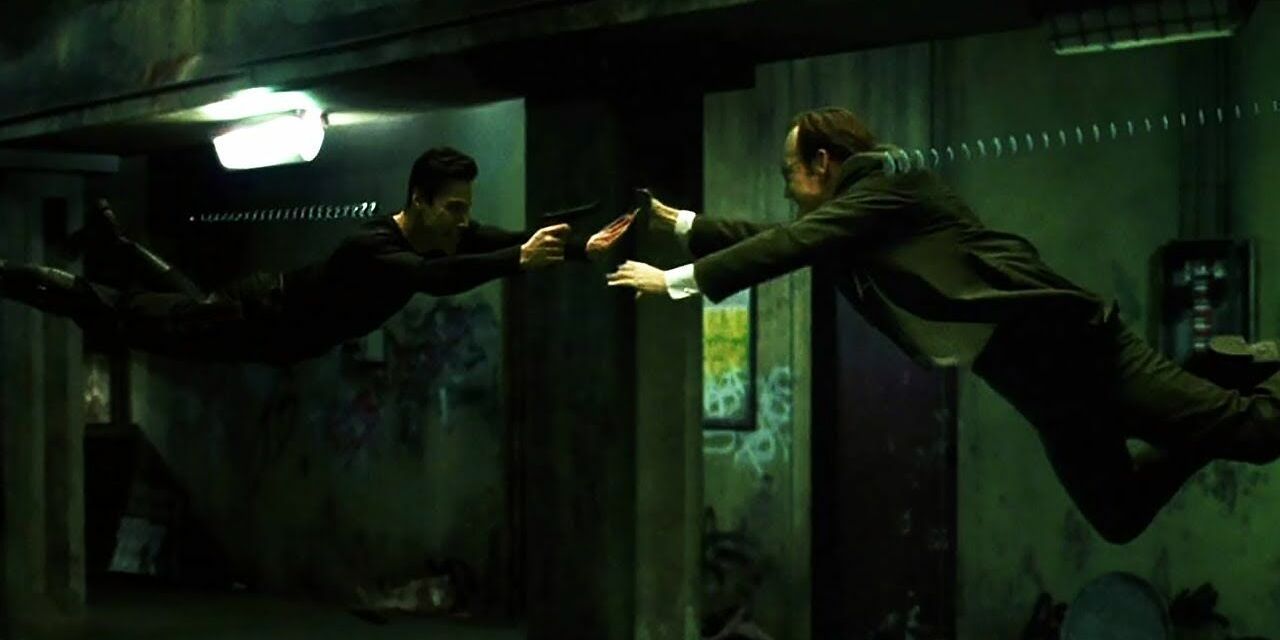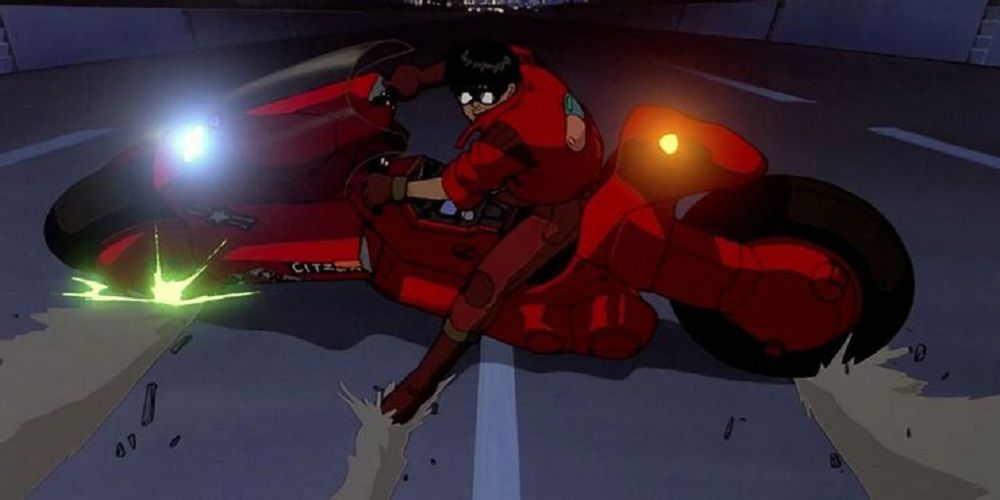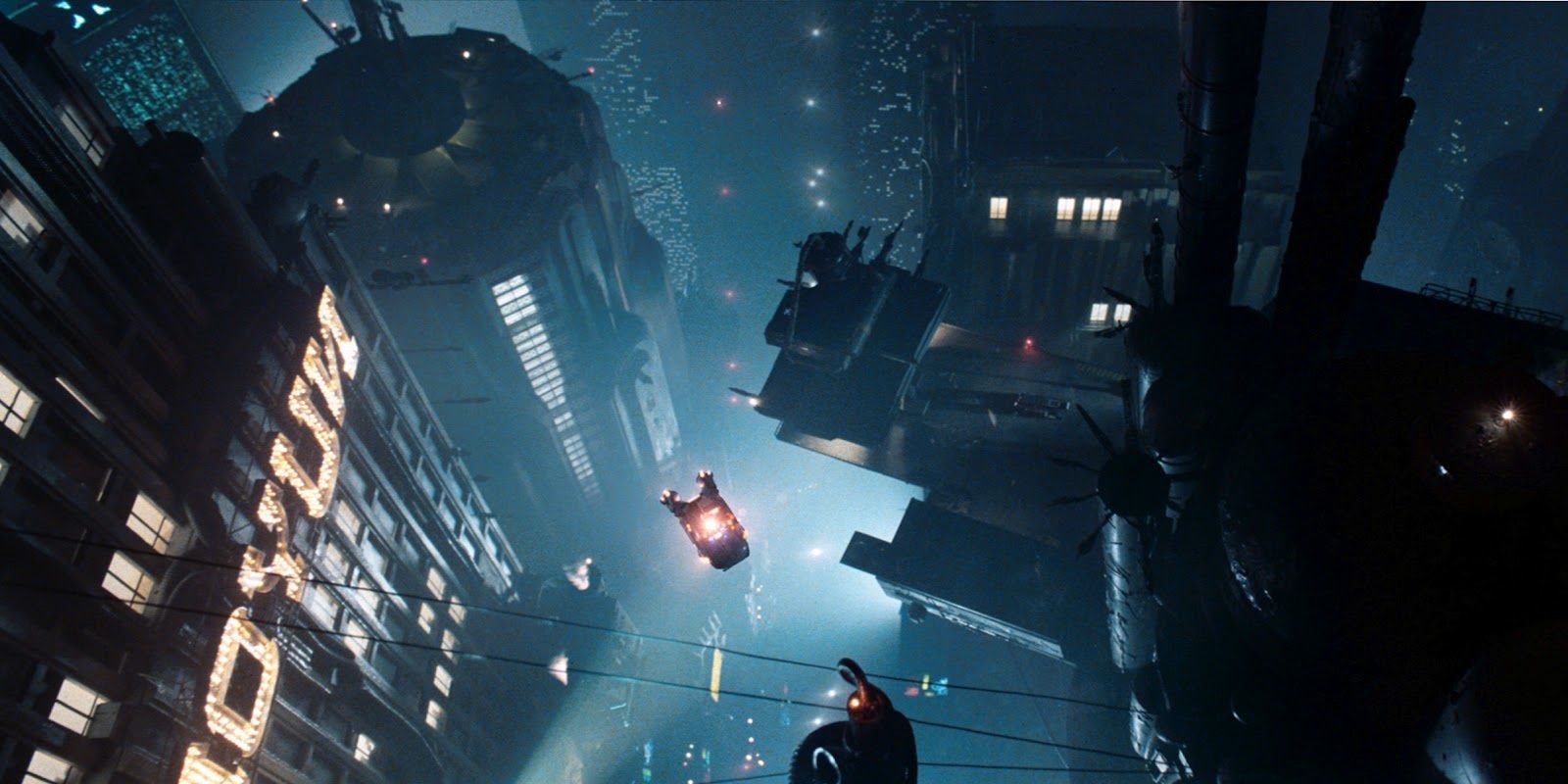The thought-provoking themes of science fiction and the wall-to-wall spectacle of action cinema can be a match made in heaven if they’re combined well enough. A truly great sci-fi action movie isn’t just a regular actioner in a futuristic setting; the best ones use their action sequences to keep the provocative explorations of speculative concepts engaging.
Paul Verhoeven’s Total Recall is a prime example of a sci-fi action movie that’s a great sci-fi movie and a great action movie. Adapted from the Philip K. Dick story “We Can Remember It for You Wholesale,” Total Recall is essentially an action-packed Black Mirror episode starring Arnold Schwarzenegger.
Total Recall (1990)
Arnold Schwarzenegger stars in Total Recall as a blue-collar worker in the near future who’s told about an experimental company that can implant memories of vacations, which is cheaper than actually going on vacation.
He decides to have the memories of a secret agent on Mars implanted in his brain, but halfway through the procedure, he breaks out of the machine, ranting and raving about how he needs to get back to Mars to complete his mission. He spends the rest of the movie questioning his identity and ripping apart his own reality.
Looper (2012)
Before he directed Star Wars' controversial The Last Jedi, Rian Johnson wrote and directed a much more agreeable movie the underrated sci-fi actioner Looper.
Joseph Gordon-Levitt plays an assassin who dispenses targets that the mob sends back in time. Complications arise when he’s tasked with killing his own future self, played by Bruce Willis (who, admittedly, looks nothing like Joseph Gordon-Levitt).
Annihilation (2018)
Alex Garland followed up his directorial debut Ex Machina with Annihilation, a sci-fi odyssey starring Natalie Portman as a scientist who leads a team into “The Shimmer,” a strange zone that mutates animal and plant life, seemingly controlled by aliens.
This movie has some of the most disturbing imagery in recent memory, and Tessa Thompson, Jennifer Jason Leigh, and Gina Rodriguez all give terrific supporting performances alongside Portman.
Minority Report (2002)
Much like Total Recall, Steven Spielberg’s Minority Report was adapted from the work of Philip K. Dick. Tom Cruise stars in this one as a police chief in the near future, when technology has been developed that can predict crimes before they take place.
He has to go on the run when he’s accused of the future murder of a man he’s never met, so he can figure out who the guy is and hopefully avoid killing him.
Inception (2010)
After the record-breaking success of The Dark Knight, Christopher Nolan could walk into the offices of Warner Bros. with a pitch for a dream heist movie and walk out with a $160 million check to go and make it.
While Nolan’s most recent film Tenet suffered from muddled storytelling and an inconsistent tone, Inception still holds up today as an action masterpiece. As usual, Nolan achieved as much as possible through practical methods, including building a rotating hallway for the movie’s most breathtaking fight scene. Plus, Inception’s dream levels are much easier to comprehend (and more interesting) than Tenet’s time inversion.
They Live (1988)
John Carpenter’s zany dystopian actioner They Live is a biting satire of consumerism. Roddy Piper stars as a homeless drifter who finds a magical pair of sunglasses that allow him to see the world as it really is. The one percent are alien invaders who have taken over the world and all the ads that fill cityscapes have straightforward messages like, “OBEY,” and “CONSUME,” to keep the human race in line.
Although the movie was unfortunately misinterpreted by some white supremacists, it’s pretty overtly a satirical critique of capitalism. Its ‘80s-specific takedown of Reaganomics holds up today.
Snowpiercer (2013)
All of Bong Joon-ho’s movies are about the class divide in some respect — including his landmark Best Picture winner Parasite — and 2013’s Snowpiercer looks at it through a sci-fi lens.
Set on a train tearing through an uninhabitable future Earth in the midst of an ice age, Snowpiercer stars Chris Evans as a lower-class passenger who leads a revolution against the upper classes who live in luxury with fine dining while they sleep in cramped bunks and eat bugs.
The Matrix (1999)
In crafting The Matrix, the Wachowskis basically put Ghost in the Shell, Alice’s Adventures in Wonderland, and a bunch of Hong Kong action movies into a blender. The result is a movie with mind-blowing action scenes, thought-provoking themes, and a compelling plot that questions the fabric of reality.
Keanu Reeves stars as an office drone who realizes our reality is a lie and he’s “the One” who’s prophesized to win the war against the machine overlords.
Akira (1988)
Credited with bringing anime into the mainstream, Akira is a post-apocalyptic superhero story with cyberpunk visuals about the leader of a biker gang and his childhood friend who acquires telekinetic abilities after a motorcycle accident.
With a captivating plot, mesmerizing action scenes, and stunning visuals of a vast neon-drenched cityscape, Akira is a true masterpiece of the sci-fi action subgenre.
Blade Runner (1982)
Ridley Scott took cues from film noir in adapting Do Androids Dream of Electric Sheep? by Philip K. Dick into Blade Runner, and ended up creating a whole new subgenre: the “tech-noir.” Rick Deckard is a hard-boiled detective in the mold of Philip Marlowe, but he’s looking for cyborgs posing as humans in a sprawling futuristic metropolis.
The film noir’s exploration of moral gray areas and urban decay is even more relevant in a dystopian future with towering skyscrapers and assimilated artificial intelligence. Mercifully, Denis Villeneuve’s belated sequel Blade Runner 2049 (one of the few belated sequels that actually satisfied fans) left the ambiguity of Scott’s film intact.

